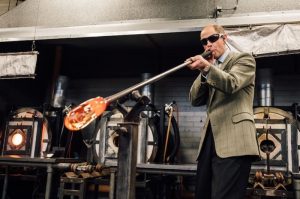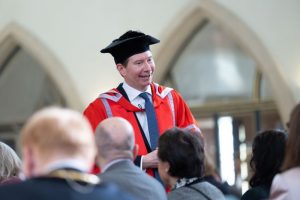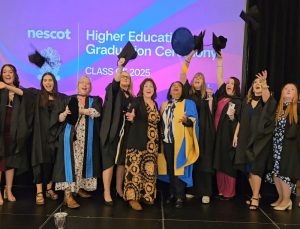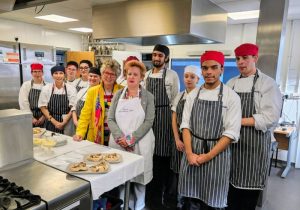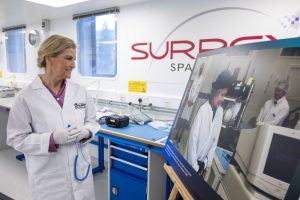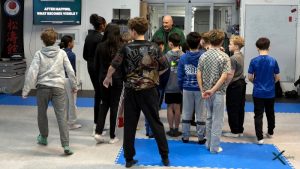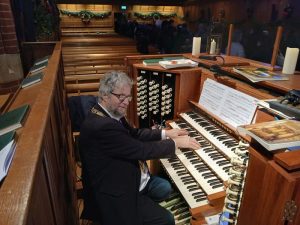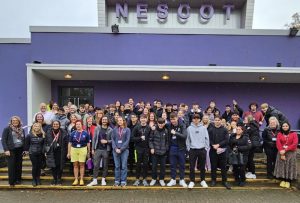Thursday 12th February, The Duke of Edinburgh visited University for the Creative Arts (UCA) and its School of Creative & Cultural Industries, to celebrate it providing 170 years of practice-based, creative education and to meet its current young creatives who study across traditional and emerging arts.
UCA welcomed The Duke, who has a professional background in the creative industries and is a Patron of a range of organisations that aim to widen opportunities within the sector.
His Royal Highness was met at UCA by Joint Acting Vice-Chancellors, Professor Melanie Gray and Professor Mark Ellul, alongside Chancellor, Dame Magdalene Odundo; Executive Dean, Professor Sophy Smith; and Pro-Vice Chancellor Academic Partnerships & Industry Engagement, Professor Lyndsay Duthie.
Professors Gray and Ellul, commented: “We are honoured to welcome HRH The Duke of Edinburgh, a recognised champion of the arts, to UCA in Farnham. We were delighted to give His Royal Highness a tour of our specialist facilities, where he got hands-on experience of traditional crafts to future-facing technologies, and introduce him to the next generation of creatives, our talented student community.”
The Duke was also introduced to globally renowned fashion designer and UCA Chancellor Emerita, Dame Zandra Rhodes. Zandra began her own creative career at UCA, studying at one of its former art colleges in the 1960s, which she credits as the foundation for her creativity.
Other alumni to meet The Duke included actor Gabin Kongolo, who made history as the first Black person to perform and speak Welsh on stage at Shakespeare’s Globe and ceramicist Tim Fluck, a British Ceramics Biennial Fresh Talent Award winner.
The Duke’s tour formally commenced in UCA’s creative workshops, including its glass studio, where UCA is among only a handful of specialist institutions in the UK to offer a degree in the subject. Before the tour shifted up a gear, showcasing UCA’s high-tech filmmaking space, its Virtual Production studio. Students used real-time rendering software and motion capture to immerse His Royal Highness in a scene from Moryow, which was shot in the space and will make its debut on the film festival circuit later this year.
Professor Duthie then led a Creative Economy Roundtable discussion in which The Duke actively participated, alongside UCA academics and members of the University’s very own Creative & Cultural Industries Leaders Network, as well as alumni.
Professor Duthie said: “The UK’s creative and cultural industries contribute £126bn to the economy and support over 2.4 million jobs. Concurrently the sector is being fundamentally reshaped by emerging technologies. It was encouraging to hear His Royal Highness articulate a vision that aligns so closely with ours. At UCA, we are preparing the next generation not just to adopt new tools, but to shape how they are used — equipping students to think critically, create boldly, and lead an industry evolving faster than ever before.”
The Duke’s tour concluded with the unveiling of an artwork created by second year BA Graphic Design student, Ella Stevenson and received a piece of glassware designed by glass technician, Laura Quinn. The works marked The Duke’s visit, celebrating 170 years of UCA.
The Duke said: “Congratulations on 170 years of developing all those essential arts, crafts and keeping the creative flame well and truly alight.”
University of the Creative Arts.


